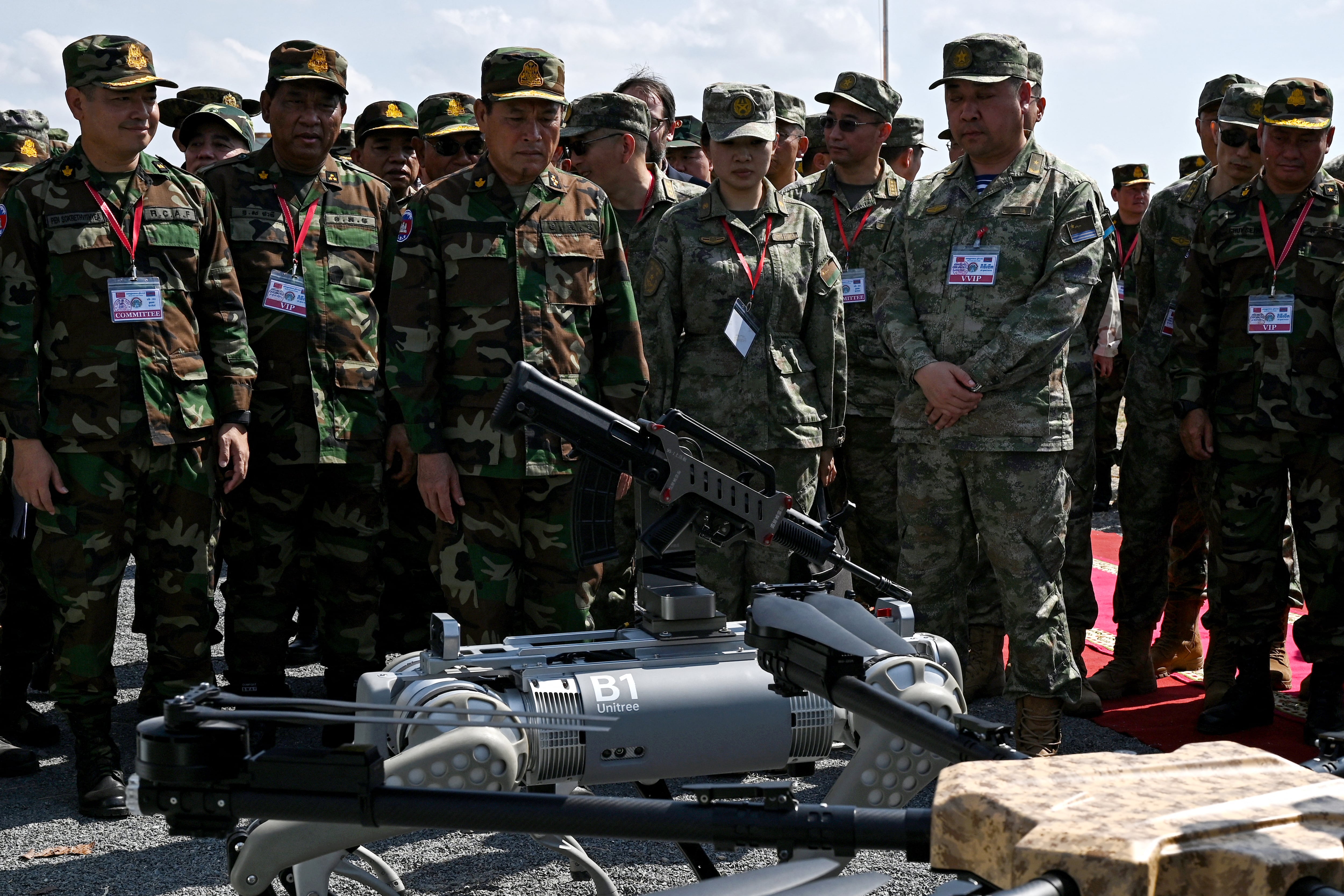There’s already something rather unsettling about a dog without a head. Robo-dogs — machines that can walk like a dog despite moving on four strangely-hinged legs — have already become striking due to this feature.
But even more frightening? A headless dog toting a gun.
Yet that’s exactly what China’s military is up to. As CNN recently reported, China unveiled a robot dog with an automatic rifle attached to its back during military drills in Cambodia this pas May. Man’s best friend indeed.
In an interview with a local state broadcaster, a Chinese soldier reportedly stated that the robot dog can help urban combat operations, making reconnaissance easier. This would help the Chinese military identify its enemies without as much risk to human soldiers. In tight, unpredictable urban battle environments, anything can be lurking around the corner. And now in 2024, “anything” can include a robot dog with a machine gun.
What the innovation means for the world
Dogs have been part of war for centuries. The ancient Romans had “war dogs” who assisted their legions. And CNN is quick to point out that military dogs — particularly robot dogs — aren’t new, either. Robots have been part of military life since the technology has grown sophisticated enough for these machines to cover unpredictable terrain. In fact, China has armed electronic “dogs” with rifles in the past.
However, any new video highlighting battlefield technology like this is bound to raise a few eyebrows. Showing off new urban warfare capabilities is always a provocative move. And with China-Taiwan relations of critical importance to Southeast Asia, any provocation will make headlines.
According to Yahoo! News, the robodogs were showcased in a military exercise called “Golden Dragon” — located in a “remote training center” in central Cambodia, as well as off the country’s coast. The video featured staff members of the military taking the dogs for a “walk,” with their machine guns in tow ominously featuring the machine guns. However, it’s worth noting that the guns were never fired.
Is this a game-changing weapon in urban warfare? Hardly. U.S. officials are all too aware of drone technology, robotic, and other small-scale urban warfare tactics that new technology is making possible.
What kind of response can we expect from the U.S.?
The Pentagon has already announced similar inventions. For example, the U.S. Army has considered arming its remote-controlled robot dogs with high-tech rifles. U.S.-based military contractors like Ghost Robotics have already built prototypes to demonstrate how much control these dogs can allow the military.
For the more popular name in robotics, Boston Dynamics, attaching a gun to a robot dog is a no-no. The company says that its own internal terms of service prohibit it from turning its inventions into weapons of war.
However, one thing is clear: the world’s largest militaries are exploring the possibilities of robot technology. If this is what China allows journalists to see, one can only wonder what technology they’re not allowing them to see. And any time China unveils technology that might make its military more effective in the case of, say, an island invasion, the world community takes notice.









